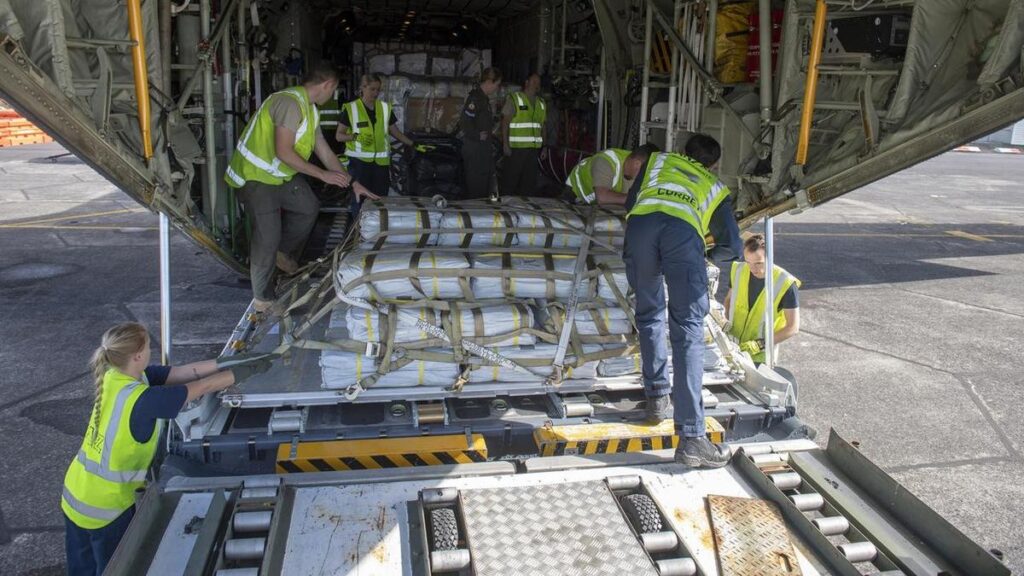New Zealand has slashed foreign aid to its lowest level in four years, with specific cuts to climate finance, in a move decried by the international development sector as a broken promise.
Finance Minister Nicola Willis unveiled the coalition’s second budget on Thursday, with a headline deficit of $NZ14.7 billion ($A13.5 billion).
Budget documents show official development assistance (ODA) spending dropping from $NZ1.1 billion last year to $NZ999 million this year, its lowest level since 2021.
These figures do not include a drop in the cost of managing ODA, also cut by seven per cent from $NZ100 million to $NZ92.7 million.
In parliament, Ms Willis said the $NZ100 million cut was in the area of climate finance – which is aid given to developing nations to help them adapt or mitigate to the threat of global warming.
Budget papers show the government replacing a previous $NZ200 million annual commitment with a $NZ100 million budget line, but with no guarantees it will be spend on climate finance.
“The new funding will be used for (aid) projects with a priority focus on the Pacific. It will not be exclusively focused on meeting climate finance objectives,” the budget states.
Terence Wood, ANU-based development fellow, called the new budget a “grim tale”.
“When inflation is taken into account, by 2026/27 New Zealand aid will have fallen to 2019 levels, and it will have done so over a period where – thanks to climate change, illness and war – the need for aid has been rising fast,” he wrote.
According to World Vision, New Zealand’s aid is now 0.24 per cent of gross national income, well short of the UN-backed goal of 0.7 per cent.
World Vision New Zealand director Grant Bayldon said the cut in climate finance amounted to New Zealand “turning its back on the Pacific region”.
“New Zealand made a clear commitment under the Paris Agreement to support people in the world’s most vulnerable countries to adapt to climate change,” he said.
“Many of them are our Pacific neighbours, where children are already facing the devastating impact of climate change. We promised to stand with them – now we’re pulling back.”
Nick Henry, Oxfam Aotearoa’s climate justice lead, said the cuts came after New Zealand made commitments to triple climate financing by 2030 at the UN’s climate summit last year.
“This is really hard to understand as anything other than a breaking of that promise and a betrayal of our Pacific neighbours,” he told NZ website Newsroom.
Ms Willis told parliament Foreign Affairs Minister Winston Peters argued for more aid.
“Members will not be surprised to know that the Minister of Foreign Affairs has made a case for more funding, and this will be looked at in future budgets,” she told parliament in her budget speech.
The tough budgetary treatment for the Ministry of Foreign Affairs and Trade (MFAT) stands in contrast to the coalition’s first budget.
In 2024, Mr Peters was able to spare MFAT from cuts averaging seven per cent to most agencies, instead given a one per cent reduction.
Mr Peters – who was in Adelaide on Friday for the six-monthly dialogue with Australia’s foreign minister – did not respond to a request for comment.
In its most recent budget, Australia increased foreign aid in real terms, but the amount also fell to 0.18 per cent of GNI.
https://thewest.com.au/business/money/new-zealand-takes-scalpel-to-foreign-aid-budget-c-18790921


